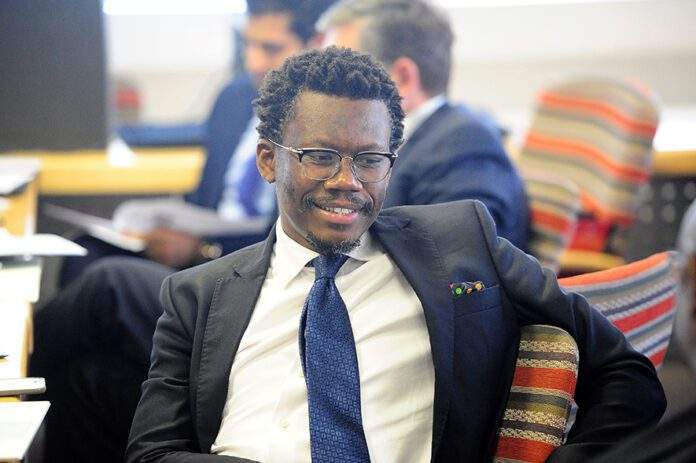This Friday in The Hague, Netherlands, will see the delivery of the verdict in the genocide case brought by South Africa against Israel.
In response to South Africa’s accusations of state-led genocide during the Israeli military operation in Gaza, the International Court of Justice (ICJ) will rule on whether to approve emergency measures against Israel, the court confirmed in a statement on Wednesday.
Sunday World understands the ruling will not address whether Israel is committing genocide. Instead, it will focus on potential emergency measures that are applicable.
The case, which was filed in December, is focused on the deadly conflict in Gaza, which started on October 7 2023, when the militant Palestinian organisation Hamas attacked Israel.
Hamas attack
At least 1,200 people lost their lives as a result of the Hamas attack, and over 200 more were held hostage.
In retaliation, Israel attacked Gaza with aircraft and began a ground offensive on October 31 that resulted in over 20 000 deaths.
The casualties continue to rise as the bombardment has intensified in recent weeks.
A temporary truce in November saw the release of some people taken hostage by the militant group, as well as the release of some Palestinian prisoners held in Israel.
South Africa’s legal team at the ICJ argued that Israel’s military attack on Gaza exhibited genocidal intent, based on statements by the country’s political and military leaders.
Team South Africa highlighted Israeli Prime Minister Netanyahu’s biblical references, aggressive military tactics, and inflammatory rhetoric in the Knesset.
The lawyers also argued that Israel’s actions in Gaza go beyond a conflict, violating international law.
They stressed the dire humanitarian situation, urging immediate measures to protect Palestinians.
South Africa claims Israel’s actions constitute two genocidal acts: mass killings and harm to Palestinians’ wellbeing, accusing Israel of failing to prevent or punish these acts.
Many people interpreted the phrase “remember what Amalek has done to you” as an invocation to genocide.
“Soldiers believe that this language and their actions are acceptable because the destruction of Palestinian life in Gaza is articulated state policy,” argued advocate Tembeka Ngcukaitobi.
“95-year-old Israeli army reservist Ezra Yahin, a veteran of the 1948 Deir Yassin massacre against the Palestinians, was encouraged, without censure, to speak to the soldiers ahead of the ground invasion in Gaza.
War talk
Ngcukaitobi quoted Yahin as saying: “In his talk, he echoed the same sentiment while being driven around in an Israeli army vehicle dressed in Israeli army fatigue.
“Be triumphant and finish them off, and don’t leave anyone behind. Erase the memory of them. Erase them, their families, mothers, and children. These animals can no longer live.
“If you have an Arab neighbour, don’t wait; go to his home and shoot him. We want to invade, not like before. We want to enter and destroy what’s in front of us.
“Destroy houses, then destroy the one after it with all of our forces — complete destruction. Enter and destroy.”
Acts committed with the intent to destroy, in whole or in part, a national, ethnical, racial, or religious group are classified as genocide under the Genocide Convention, to which South Africa and other signatory states are parties.
These acts include killing members of the group, causing serious bodily or mental harm, imposing conditions leading to physical destruction, preventing births within the group, or forcibly transferring children from one group to another.
The convention places a duty on signatory states to both prevent and punish genocide, which is what South Africa has done.
Acting in self-defence
In response, Israel’s legal team claimed that the state had acted in self-defence.
The team argued that civilian casualties that occurred during the conflict were an unfortunate consequence of warfare and not evidence of genocidal intent.
“Urban warfare will always result in civilian harm. They may be the unintended but lawful result of attacks on military targets. They do not constitute genocidal acts.”.
Israeli foreign affairs lawyer Tal Becker charged that South Africa was using the word “genocide” as a weapon and criticised the country for its skewed account of the events.
Becker vehemently disagreed with interim measures intended to halt Israel’s military offensive, citing Israel’s right to self-defence.
Instead, he called for provisional measures against South Africa, alleging close ties with Hamas.
Professor Malcolm Shaw, an Israeli team member, expressed disapproval of South Africa’s approach, stating that it goes beyond a mere “dispute”.
Shaw questioned South Africa’s claim of attempting to start a dialogue, asserting that Israel initiated bilateral talks and suggesting that if South Africa had accepted, there might have been no need for this case.



